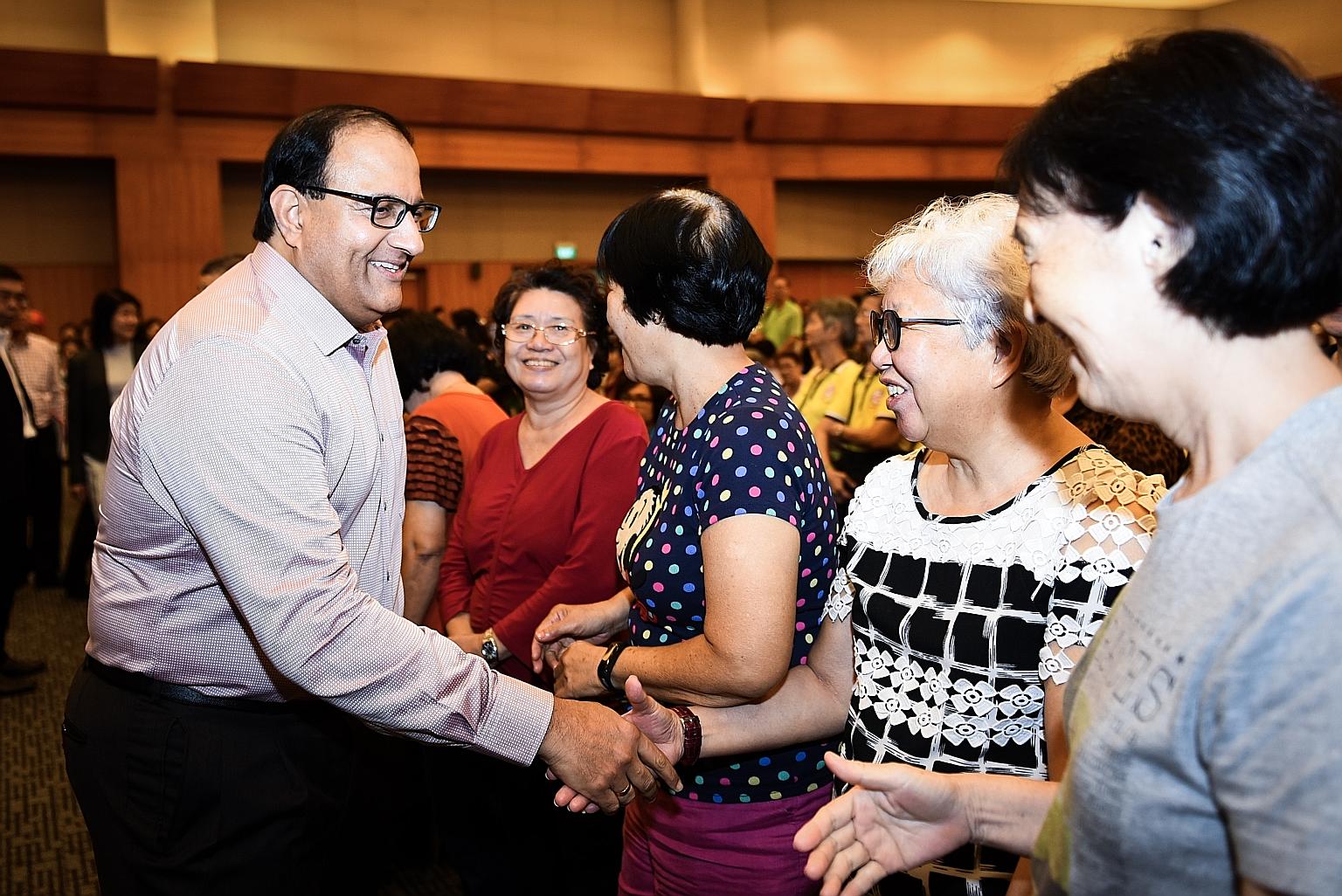Teaching guidelines on how to spot fake news to be launched
Move among three educational initiatives aiming to boost media literacy, nurture informed public
Sign up now: Get ST's newsletters delivered to your inbox

Mr S. Iswaran greeting attendees at the Institute of Technical Education College East's Service Learning Day yesterday, where students held a series of events for seniors, including on how to identify fake news.
ST PHOTO: MATTHIAS CHONG
Guidelines on ways to spot fake news will be out by June to help trainers, public agencies and other organisations that plan to teach people about media literacy.
This national framework for media literacy is being developed by the Ministry of Communications and Information with the National Library Board, the Infocomm Media Development Authority and the Cyber Security Agency of Singapore, said Minister for Communications and Information S. Iswaran.
The move is among three educational initiatives Mr Iswaran announced yesterday following a parliamentary committee report that included 22 recommendations on how Singapore should deal with the challenges posed by the scourge of online falsehoods.
Apart from legislation, the committee called for, among other proposals, efforts to nurture an informed public and promote fact checking.
An informed public is the first and most important line of defence against fake news, Mr Iswaran said.
"If each and every citizen understands that not all online information is authentic, and has the capacity and confidence to discern fact from falsehood, then, and only then, would Singapore truly be able to withstand this global threat."
He made the point at the Institute of Technical Education College East's Service Learning Day, during which students held a series of events for senior citizens, including on how to spot fake news.
Mr Iswaran later told reporters at the event that as part of the effort to educate people, surveys are important, as well as gaining an understanding of trends and technologies, Internet usage patterns, and the opinions and concerns of citizens.
"All these... will then inform what we need to do, especially in terms of the effort (for) education and outreach," he said.
"Because if we know that certain segments or perhaps certain channels pose particular challenges and difficulties, then that is a group we would want to make sure we allocate significant attention to so that they are better equipped to deal with this challenge."
He also said the Government will continually revisit its efforts to ensure they are effective.
Mr Iswaran also announced that the Education Ministry will roll out a new media literacy toolkit later this month for schools ranging from the primary to junior college level.
These are teaching aids for lessons on how to be ethical consumers and producers of online content. They include lesson ideas, presentation slides and assessment items that teachers of all subjects can use to infuse their lessons with media literacy tips.
Two university dons interviewed stressed the importance of continually updating the national guidelines and the teachers' toolkit to reflect technological changes and the evolving business model of media platforms.
"But there are a lot of core principles that will never go out of style - discernment, not taking things at face value and verifying things that seem dubious," said Professor Lim Sun Sun of the Singapore University of Technology and Design.
The third initiative launched by Mr Iswaran was the fifth instalment of this year's Better Internet Campaign, run by the Media Literacy Council.
This latest move targets mature adults and seniors using a short online video, social media games and quizzes and brochures to teach them how to identify fake news.
Meanwhile, the Government is studying closely the suggestion for a fact-checking entity, and has begun consulting various parties to gather feedback and ideas on what form such an entity could take, said Mr Iswaran.


